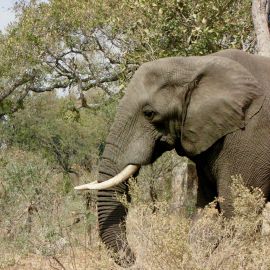
by Tara Waters Lumpkin
"Depression is biological," The experts say. "Feel good! Take Prozac,
Read more
by Tara Waters Lumpkin
In old Africa: Dust stirred by bare feet and lions’ paws . . . Gone now.
Read more
by Kira Johnson
I used to be involved in a team-taught course at Boston University called Biodiversity: Causes and Consequences. I gave two lectures: one on the fossil evidence of biodiversity and another on the history…
Read more
by Lysander Christo
Silent steps of evolution, highest height of all the world. Of all the world a graceful trot, so fast, yet so slow through the savannah, where the elephants trumpet and blow.
Read more
by Kira Johnson
As extinction quietly steals earth’s species, photographer and filmmaker Sean Gallagher is tapping into the popularity of social media to bring global attention to the crisis.
Read more
by Lysander Christo
In this unprincipled time of elephant carnage in the name of ivory, my wife, son and I have come to view elephants as being on equal footing, searching for them with a guide on conservation lands.
Read more
by Debra Denker
Growing up in Northern Alberta in the 1950s and 1960s, Cree Medicine Woman Nicole Gladu never dreamed that there would come a time when the rich sources of game that sustained her people would become scarce,…
Read more
by Kathryn Pardo
A new study, published in Marine Ecology Progress Series on July 28, shows that while protected areas are increasing throughout the world, they are not adequate to stymie the loss of biodiversity.
Read more
